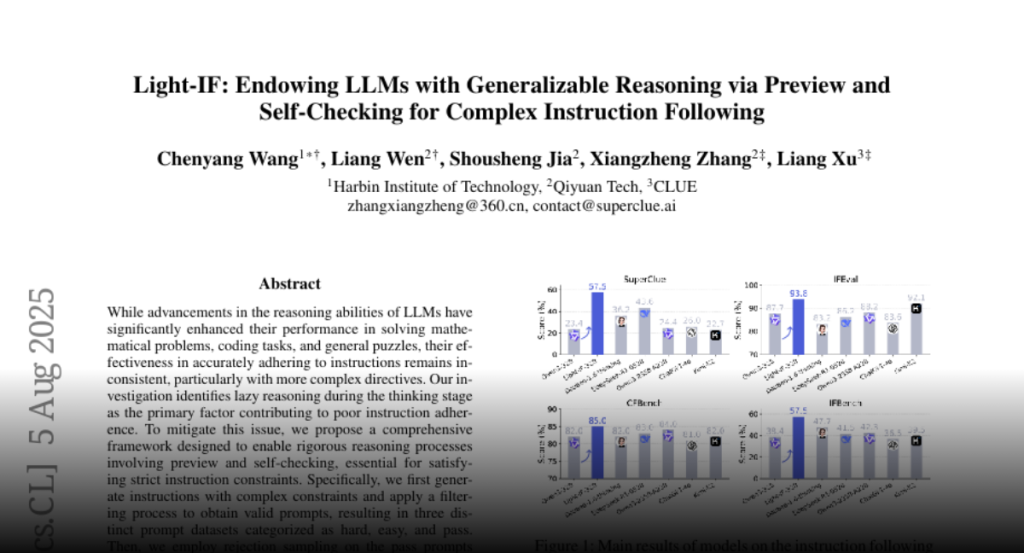A framework using entropy-preserving supervised fine-tuning and token-wise entropy-adaptive reinforcement learning improves instruction adherence in LLMs by fostering rigorous reasoning processes.
While advancements in the reasoning abilities of LLMs have significantly
enhanced their performance in solving mathematical problems, coding tasks, and
general puzzles, their effectiveness in accurately adhering to instructions
remains inconsistent, particularly with more complex directives. Our
investigation identifies lazy reasoning during the thinking stage as the
primary factor contributing to poor instruction adherence. To mitigate this
issue, we propose a comprehensive framework designed to enable rigorous
reasoning processes involving preview and self-checking, essential for
satisfying strict instruction constraints. Specifically, we first generate
instructions with complex constraints and apply a filtering process to obtain
valid prompts, resulting in three distinct prompt datasets categorized as hard,
easy, and pass. Then, we employ rejection sampling on the pass prompts to
curate a small yet high-quality dataset, enabling a cold-start initialization
of the model and facilitating its adaptation to effective reasoning patterns.
Subsequently, we employ an entropy-preserving supervised fine-tuning
(Entropy-SFT) strategy coupled with token-wise entropy-adaptive (TEA-RL)
reinforcement learning guided by rule-based dense rewards. This approach
encourages the model to transform its reasoning mechanism, ultimately fostering
generalizable reasoning abilities that encompass preview and self-checking.
Extensive experiments conducted on instruction-following benchmarks demonstrate
remarkable performance improvements across various model scales. Notably, our
Light-IF-32B model surpasses both larger open-source models such as DeepSeek-R1
and closed-source models like Doubao-1.6.

